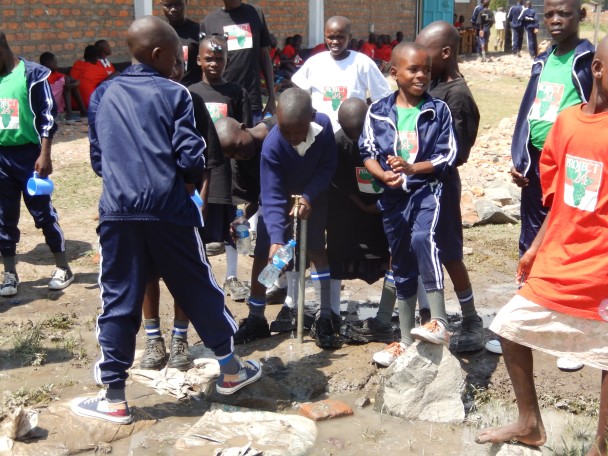 Early on in the life of Project 24 there was some rather nasty opposition to the endeavor to build what at that time was called “rescue centers”. There was some nasty opposition to water wells and clean water projects. It lead to a rather plaintive question – “Why would anyone not want to help orphans?” I have learned that there are all kinds of reasons that Christian theologians don’t want to help orphans, and if the truth be told do any kind of mercy work. They range from high sounding theological propositions to the grossest kind of greed. They range from the belief that mercy should take second fiddle to the proclamation of the Gospel to a kind of “clergy union” mentality that is pretty sad. I had someone, a Pastor, tell me that he wondered about all the money that could have been used in his church that went to help needy students, in a partner church. At least he told me to my face and not on some blog spot somewhere, but the impression left was that he felt that the mission of his church was……him.
Early on in the life of Project 24 there was some rather nasty opposition to the endeavor to build what at that time was called “rescue centers”. There was some nasty opposition to water wells and clean water projects. It lead to a rather plaintive question – “Why would anyone not want to help orphans?” I have learned that there are all kinds of reasons that Christian theologians don’t want to help orphans, and if the truth be told do any kind of mercy work. They range from high sounding theological propositions to the grossest kind of greed. They range from the belief that mercy should take second fiddle to the proclamation of the Gospel to a kind of “clergy union” mentality that is pretty sad. I had someone, a Pastor, tell me that he wondered about all the money that could have been used in his church that went to help needy students, in a partner church. At least he told me to my face and not on some blog spot somewhere, but the impression left was that he felt that the mission of his church was……him.
I will answer his question here as I answered it to his face. ” If people wanted to spend their money in your/their church, either on the building or the parking lot or your salary they would have. Christian people motivated by the Gospel that you preach Sunday after Sunday understand that the forgiveness of their sins frees them to live a merciful life and to do something for others even if they will never meet them this side of eternity. Getting people impelled and compelled by the Gospel to use missionary and mercy gifts to pave your parking lot is a stretch. Trying to get them to forget the diakonic (service/mercy) life that they are called to by their baptism in the name of stewardship is pathetic. To pit needs in one place against those in another is a parlor trick”.
The forgiveness of sins and the real effects of the gift of the Lord’s Supper take us out of ourselves and place us in the midst of the redeemed community wherever it exists. This from the “Theology for Mercy” by Matt Harrison.
“The church’s diakonic life will also reach beyond its borders according to the intensity of need confronted and level of resources provided by God (1 Cor. 9:10-11; Gal. 6:10). The church’s missionary work will be a persistent arena for the expression of diakonic love and mercy. Diakonic love will often function as “pre-evangelism,” and rightly so, so long as word (gospel) and deed (love) continue to mark the missionary church’s life at every stage. Strengthening and reaching out in love to Lutheran partner churches will be a priority.”

